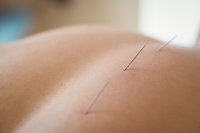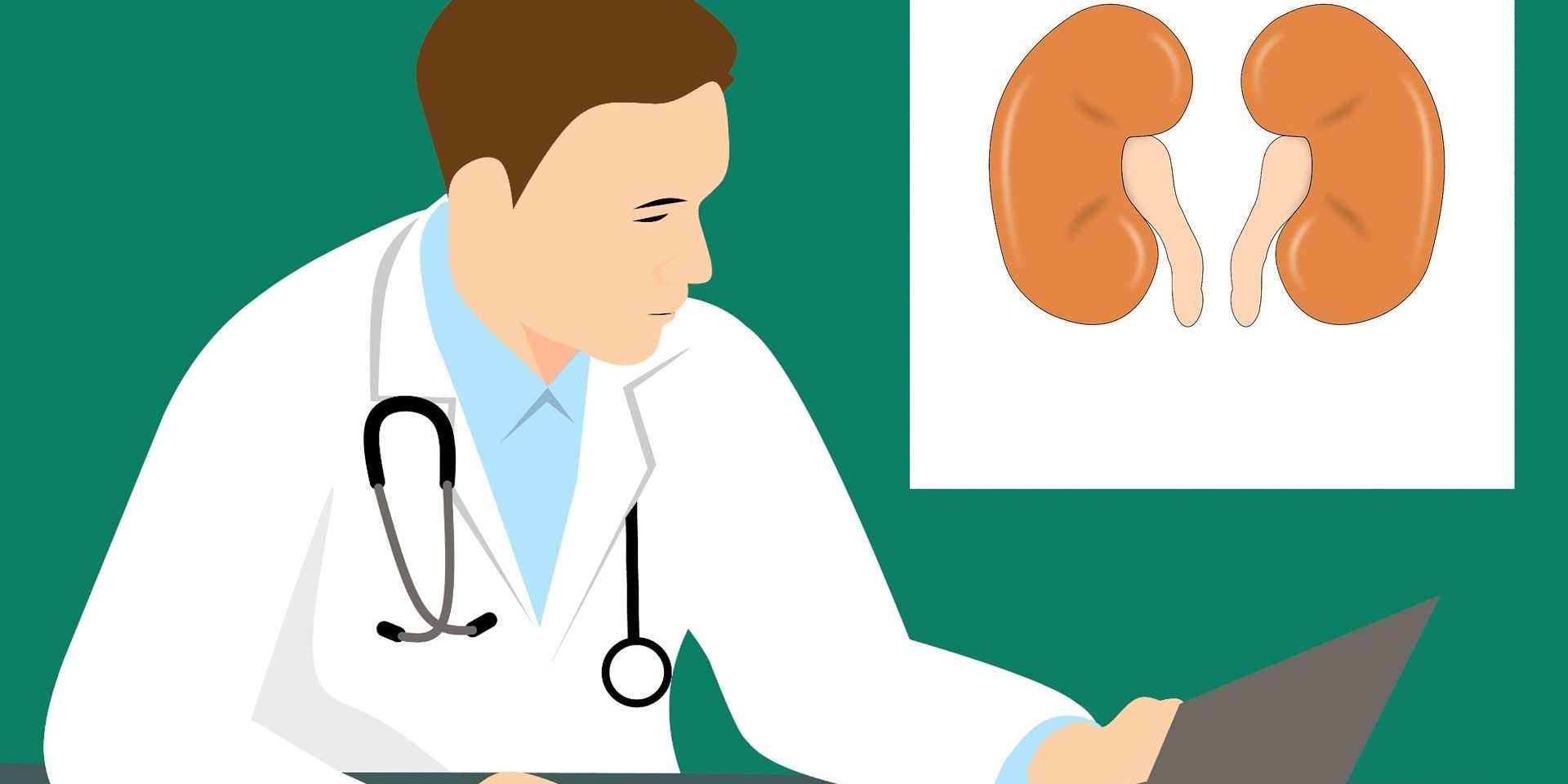November 2020 Edition
What’s New
The average kidney is as big as a cellphone and weighs 4-6 ounces. Even though the kidney only accounts for 0.5% of the body’s weight on average, it receives more blood than all other organs except the liver.
Your Kidneys: Essential to Overall Health

Healthy kidneys are essential, not just for the urinary system, but for the entire body. They remove waste and help maintain the body’s internal environment, or homeostasis. Unfortunately, not everyone has healthy kidneys and very few people are even aware when there’s a problem. In fact, 33% of adults in the U.S. (that’s 1 in 3 people) are at risk for kidney disease, which often goes undetected until much of the organs are destroyed and function impaired. When the kidneys aren’t functioning properly, a person is at higher risk for other health complications. Advanced kidney disease requires lifelong treatment with dialysis or an organ transplant.
As part of the urinary system, healthy kidneys filter about a half cup of blood every minute, removing waste and extra water, which constitutes the urine that then flows from the kidneys through two ureters and into the bladder to be excreted. Outside the urinary system, the kidneys influence fluid balance and pressures that allow other organ systems and tissues to function properly.
8 Things Healthy Kidneys Do
- Regulate the body’s fluid levels to maintain homeostasis
- Reabsorption of nutrients to maintain homeostasis
- Filter wastes (urea and uric acid) and toxins from the blood
- Release a hormone that regulates blood pressure
- Regulate electrolyte-water balance (sodium, potassium, magnesium, other minerals)
- Maintain acceptable body pH level (7.35- 7.45)
- Activate vitamin D to maintain healthy bones
- Release the hormone that directs production of red blood cells
Kidney infection results from bacteria in the bladder that moves into the kidneys. Symptoms include low back pain, painful urination, and sometimes fever. Changes in the urine may include the presence of blood, cloudiness, and a different odor. Kidney infection is more common in women than in men. Pregnant women are at an increased risk.
Kidney stones can form as a solid build-up of minerals in the kidney, causing intense pain. If the stones block the ureter, there will be other problems with function and potential infection.
Kidney (renal) failure also known as End Stage Renal Disease (ESRD) is when the kidneys become unable to effectively filter out waste products from the blood. This can happen over time (chronic) or suddenly (acute).
In the case of severe kidney damage, dialysis might be an option. It is only used for end-stage kidney failure where 85 to 90 percent of kidney function is lost. Kidney dialysis aims to complete the primary functions of a healthy kidney, including removal of waste, excess salt, and water; maintaining the correct balance of sodium, bicarbonate, potassium, and other substances; and maintaining blood pressure.
Risk Factors for Kidney Disease
Several known risk factors for kidney disease include older age (60+ years ), diabetes, high blood pressure, heart disease, pharmaceuticals, and obesity. Whether you or immediate family members have these other conditions can increase your risk for kidney disease.
Most people with early kidney disease have no symptoms, which is why early detection is critical. By the time symptoms appear, kidney disease may be advanced, and symptoms can be misleading. Pay attention to these:
- Fatigue, weakness
- Difficult, painful urination or foamy urine
- Pink, dark urine (blood in urine)
- Increased thirst
- Increased need to urinate (especially at night)
- Puffy eyes; swollen face, hands, abdomen, ankles, feet, and shortness of breath
Keeping Kidneys Healthy
Even if you don’t have a family history or other risk factors for kidney disease, follow these tips for keeping kidneys healthy and promoting your overall health:
- Eat the optimal amount of protein for your age and activity level. It’s essential to follow a healthy diet of mostly plants, lean meat, whole grains and fresh produce – organic whenever feasible. Protein is essential to your diet, but contrary to many popular diet gurus, you don’t want to over-consume protein because it stresses the kidneys. While this may need to be individualized for you, a general rule of thumb is 0.8 g of protein per 2.2 lbs (0.8 g per 1 kg).
- Get enough exercise: Exercising for 30 minutes every day can reduce the risk of high blood pressure and obesity, both of which put pressure on kidney health.
- Stay hydrated: Fluid intake is important, especially water. In general, the guidelines are to drink half your body weight (in pounds) in ounces of water per day to help improve and maintain kidney health. (If you weigh 120 lbs, drink 60 ounces of water.) If you eat a diet high in water, you may need to drink less. Also, some people have medical conditions or are on medications that change this guideline. Discuss this with your holistic doctor.
- Moderate alcohol use: Consuming more than one drink per day can harm the kidneys and impair renal function.
- Quit Smoking: Tobacco restricts blood vessels. Without an adequate blood supply, the kidneys will not be able to complete their normal work.
If you have risk factors for kidney disease or are concerned about early warning signs, it is imperative to speak with a holistic physician like Dr. Samm Pryce. They will guide you on proper testing, dietary, and lifestyle changes that could save your life.
Food for Thought. . .
“Self-care is never a selfish act – it is simply good stewardship of the only gift I have, the gift I was put on earth to offer to others.” – Parker Palmer
Is a High Protein Diet Unhealthy for Your Kidneys?

Healthy kidneys can efficiently process protein. However, over-consuming protein can add unnecessary strain on these organs. If you have risk factors for kidney disease, or have an undetected problem, the strain created by consuming too much protein could result in a serious acute or chronic kidney disorder.
What do the kidneys do with dietary protein?
Protein, along with fat and carbohydrate, is a macronutrient necessary for health. Protein is required for the growth and repair of tissues (muscles, organs), fluid balance, wound healing, and numerous other physiological processes. For Americans, the primary sources of dietary protein are animal (chicken and beef), followed by plant (yeast, bread products) and dairy (milk, cheese, yogurt). The kidneys filter out protein metabolites (tiny molecules) created when the body digests and metabolizes protein for assimilation. Many scientists agree that filtering out excess protein makes the kidneys work harder.
How much protein do I really need?
Making decisive statements about dietary protein intake and kidney health is a challenge for a few reasons:
Lack of Definitive Recommendations for Protein Intake. Unlike other nutrients that have established recommended minimum and/or maximum intake standards for good health, protein does not currently have Adequate Intake nor a Tolerable Upper Intake Level for the general population. Instead, there is an Acceptable Macronutrient Distribution Range: Protein should make up 10-35% of energy intake for adults age 19 and above. In that large group, there are widely varying health and lifestyle factors. Who should be at the upper limit? Who should be at the lower limit? How does intense physical training affect protein needs? The basic guideline is that adults need 0.8 – 0.85 g protein per kilogram of body weight (example: 150 lb person x .8g = 120g protein daily).
Limited Studies. With the popularity of high-protein diets, more research is needed to understand the stress a high protein diet places on kidney function in healthy people. The few studies that do exist are very small or focus on athletes with high fitness levels. Also, these studies are short-term when we know that changes in organ function due to dietary habits occur over time.
Kidney Disease and Protein Intake
If you have risk factors for or have a known kidney problem, The Kidney Disease Outcomes Quality Initiative Nutrition Guidelines recommend a low-protein diet (0.6 g protein/kg weight) for people who are not using dialysis. For people with chronic kidney disease, low protein intake (0.3–0.6 g/kg weight) has been shown to reduce renal death and delay the onset of dialysis.
Although there isn’t definitive research, eating less animal protein may decrease the stress placed on the kidneys. Also, consuming less animal protein is associated with many other positive health outcomes. It makes sense that this would extend to the health and function of the kidneys. To determine the best ratio of protein for your health goals and relative to any risk factors you may have for kidney disease, consult with a holistic physician like Dr. Samm Pryce.
Fall Farro and Roasted Tempeh Protein Bowl

Here’s a perfect dish for your fall picnic. Whether you’re looking to try your first vegan meal, or enhance your current recipes, farro is a healthy grain sure to please. In this recipe, the chewy, mildly nutty flavor of farro is spiced-up by the zest of smoked tempeh; the seasoned, roasted sweet potatoes and carrots are served over fresh mixed greens. Add avocado slices seasoned with lime and cilantro or, if you’re in a rush, use a store bought avocado hummus for added flavor.
Servings: Large Bowls for 2 as a dinner entree. Small Bowls for 4 as a lunch or appetizer salad.
Ingredients
- 1 cup 1/2″ diced sweet potatoes
- 1 cup 1/2″ diced carrots
- 2 teaspoons organic sunflower oil, divided
- 15 ounces cooked chickpeas
- 4 ounces smoky organic tempeh strips
- 1 1/4 cups water
- 1/2 cup uncooked farro
- Salt and pepper
- 2 cups mixed dark greens
- 1/4 cup garlic hummus
- 2 tablespoons roasted almonds
- 4 lemon wedges
Preparation
- Preheat oven to 375F. Set out a large baking sheet.
- In a mixing bowl, toss sweet potatoes and carrots with 1 teaspoon cooking oil, and a pinch of salt and pepper. Spread out in a single layer, on a third of the baking sheet.
- In the same mixing bowl, toss the chickpeas with remaining 1 teaspoon of oil, a pinch of salt and 1/8 teaspoon black pepper, until coated. Spread out in a single layer on second third of the baking sheet. Place tempeh strips on remaining third, and roast for 30 minutes. Flip tempeh strips, and shuffle around the sweet potatoes and chickpeas (while keeping them separate), at 15 minutes.
- While those are roasting, place water, farro grains and a hefty pinch of salt into a small pot over medium heat. Cover, bring to a boil, then reduce to medium-low, cooking for 20-25 minutes or until the grains are chewy but soft.
- Once the farro is done, divide it and the greens between the bowls. When the potatoes, chickpeas, and tempeh are roasted, season with salt if necessary, then divide among the bowls, finishing with hummus, almonds and lemon wedges (for squeezing over). Serve warm and enjoy!
Milk Thistle

For over 20,000 years, Milk Thistle (Silybum marianum) has been used as an herbal remedy for digestive, liver, kidney, and gallbladder conditions. The active ingredient in milk thistle is silymarin, which can be extracted from the seeds of the plant. Research has shown milk thistle has a protective effect on the liver and similar findings have been seen in studies involving kidney function.
Silymarin promotes cell regeneration in the kidneys, just as in the liver. It also appears to protect kidney cells from damage and hinders the inflammatory response in tissue. Silymarin also has a diuretic effect while preserving the body’s store of potassium, an electrolyte important to the function of cells throughout the body including the heart and muscles. Some physicians recommend taking milk thistle when a patient needs any drug that may potentially damage the kidneys. Studies are also looking at protective benefits milk thistle may provide for people who have to undergo certain types of chemotherapy.
Milk thistle is available in capsule, extract, powder, and tincture form. The most common preparation is tea or an extract. If you have an allergy to plants such as ragweed and marigold, you may be allergic to milk thistle. Always consult with your doctor like Dr. Samm Pryce before taking any herbal supplement to determine if it’s right for you and the amount appropriate for your needs.
Resveratrol’s Protective Potential for the Kidneys

Found in plants such as grapes, berries, peanuts, and red wine, resveratrol is a biologically active compound that acts like an antioxidant, protecting the cells from damage due to toxins, aging, Type-2 diabetes, and cardiovascular disease. Now, science is looking at how resveratrol may influence the course of chronic kidney disease (CKD).
It’s important to understand that the amount of resveratrol that can be absorbed by the body through food (or through the use of OTC supplements) is not nearly as high as the amount used in medical treatment. The amount and delivery of resveratrol to the cells has to be managed based on individual needs.
The theory behind resveratrol and CKD stems from the anti-inflammatory action it has in the body, which has been demonstrated in other studies, particularly for cardiovascular disease. Inflammation and oxidative stress play a major role in both kidney disease and heart disease. This provides exciting evidence for the positive role of resveratrol as an important link in CKD prevention and treatment.
There are a few cautions for using resveratrol, especially regarding how it could interact with other medications. High doses have been shown to stop blood from clotting in test tubes, so it’s possible resveratrol could increase bleeding or bruising when taken with anti-clotting drugs, such as heparin or warfarin, or with some pain relievers. Resveratrol also blocks some enzymes that help clear certain compounds from the body; this could cause medications to build-up in the body to unsafe levels (e.g., blood pressure medications, anxiety medications and immunosuppressants). If you currently take prescription medications, check with a doctor like Dr. Samm Pryce before trying resveratrol.
Traditional Chinese Medicine and Kidney Health

Traditional Chinese Medicine (TCM) has a quite different perspective on the form, function, and health of the body, mind and spirit. Thousands of years old, TCM holds that a vital force of life, called Qi, surges through the body. Any imbalance to Qi can cause disease and illness. Imbalances are caused by an alteration in the opposite and complementary forces (called yin and yang) that constitute Qi. The ancient TCM practitioners also believed that human wellbeing is a reflection of the surrounding universe; we all are interconnected with nature and its forces, to which we are subject. To restore health, the forces/elements of Earth, Fire, Water, Wood and Metal must be brought into balance with the internal body organs and systems. TCM uses herbal remedies, acupuncture, movement such as Tai Chi, and many other modalities not common to Western medicine. TCM offers a unique way to look at the organ system, disease, and approaches to restoring vitality.
In TCM, the Kidney is the powerhouse of the body, supplying reserve energy to any organ running low on Qi. Its partner organ is the Bladder. The Kidney stores reserve energy called “prenatal Qi”, which is inherited from one’s parents. When another organ is low on energy, the Kidney sends it an extra Qi boost from this inheritance. Some of the health concerns that may arise from low Kidney energy include:
- Ear problems, such as deafness, tinnitus, or ear infections are a signal from your body that the Kidney’s energy needs extra support.
- Salty is the taste associated with kidney health. If you are craving salt, your kidney is signaling what it needs, so have a lightly-salted snack.
- Fear, anxiety, phobia, panic attacks are ways that your body may be trying to tell you that Kidney energy is imbalanced.
- Fertility and reproduction are also associated with the Kidney meridians.
TCM looks to restore balance through the energy channels in the body, called meridians. These can be optimized by stimulating the individual acupuncture points on the meridians using a variety of methods: needles, fingers, low-level lasers, tuning forks, etc. Specific types of exercise, dietary changes, and herbal remedies are also common interventions. Foods that can build strong kidney energy include seafood, bone broth, and beans. Since the Bladder meridian runs through the feet and this energy channel supports the Kidney meridian, moving the feet intentionally as in Tai Qi can invigorate this energy channel. Likewise, the ears are associated with the meridian channels for the Bladder and Kidney. Auriculotherapy (acupuncture points on the ears) can be stimulated to support the Bladder and Kidney meridians.
To better understand if TCM could be a viable treatment approach for the health of your kidneys or your general overall health, ask your doctor. This may be something they offer or they can refer you to a trained TCM physician.
Guiding Principles







